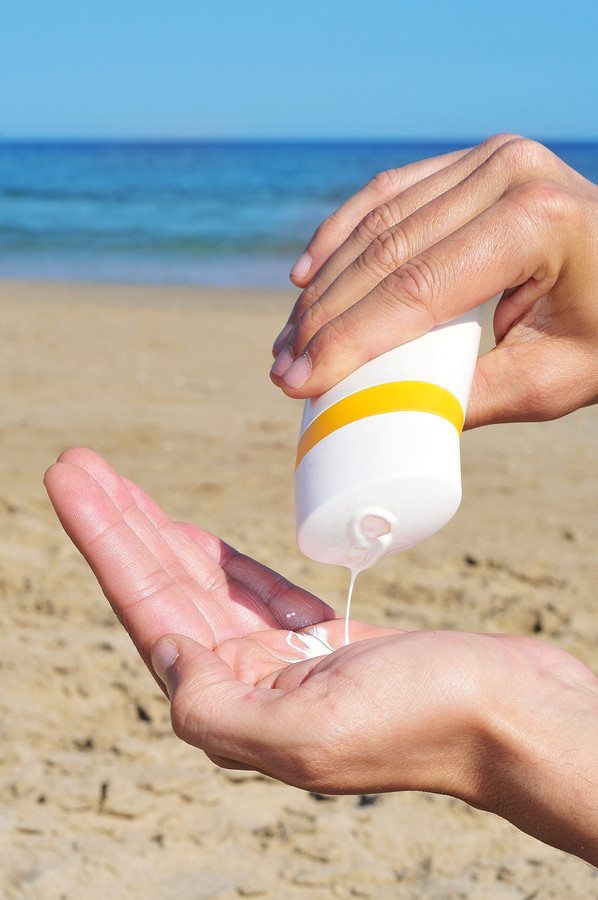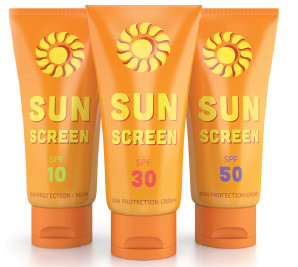
Trying to lose weight? Be careful not to lose muscle

Is your skin problem actually an autoimmune condition?

People with diabetes face higher risk of hearing loss

Antibiotic-free fixes for recurrent UTIs

Musculoskeletal syndrome of menopause: When menopause makes you ache all over

When can older women stop getting mammograms?

To lose weight, especially harmful belly fat, combine diet and exercise

Can men hold off on treating recurring prostate cancer?

The 7 types of rest and why we need them all

What are the early warning signs of cervical cancer?
Skin Cancer Archive
Articles
Adapting to life after cancer
Once you've completed treatment, adjusting to a "new normal" can be challenging.
Image: RuslaGuzov/ Thinkstock
Completing cancer therapy can feel like a graduation. You've done some hard work, it's paid off, and you may be ready to celebrate. But saying goodbye to treatment can arouse many of the emotions and uncertainties associated with beginning a new chapter in life.
Dr. Larissa Nekhlyudov is a general internist who works with cancer survivors at two Harvard affiliates, Brigham and Women's Hospital and Dana-Farber Cancer Institute. She acknowledges that cancer survivors have a lot to deal with. "Once you've had your final chemotherapy infusion or swallowed the last pill, you may find yourself facing a new set of challenges—monitoring yourself for signs of recurrence, getting recommended follow-up care, adjusting to the long-term effects of treatment, psychologically adapting to normal life, and working to stay in good health," Dr. Nekhlyudov says.
Survey finds men don't use enough sunscreen
The best way to prevent skin cancer is to use sunscreen to reduce lifetime exposure to the sun's damaging rays. But some men may not be heeding the gospel of sun protection, according to a report in the Journal of the American Academy of Dermatology.
Analysis of data from a 2013 national survey showed that less than 15% of men, compared with 30% of women, said they regularly used sunscreen on both the face and other exposed areas, such as the back, arms, and legs.
Treating melanoma
If a growth or mole looks like a melanoma, the doctor will take a biopsy to confirm the diagnosis. This entails removing either a sample of tissue or else the entire growth and some surrounding skin, and examining the tissue under a microscope to determine whether it's cancer. Depending on how deep a melanoma is, additional tissue may have to be removed. In some cases, lymph nodes may be removed, too. A procedure called sentinel node biopsy can show whether the lymph node nearest the tumor contains any cancer cells. If it does, surgery to remove additional nodes right away can improve survival.
In addition to surgery, treatments for melanoma include immunotherapy (which strengthens the immune system against the cancer), chemotherapy, and radiation therapy. Newer, so-called targeted treatments include drugs that target specific genetic changes seem in people with certain forms of melanoma. For example, about half of melanomas have genetic changes (mutations) in a gene called BRAF, which signals melanoma cells to grow and divide quickly. Drugs that inhibit BRAF, such as vemurafenib (Zelboraf ) and dabrafenib (Tafinlar), and related proteins are now available.
Protect your skin from the sun
A strong sunscreen and sun-protective clothing can help keep you safe this summer and every day of the year.
With summer here, it's time to reach for the sunscreen. But not everyone is convinced that skin protection is a necessity. "Older adults grew up at a time when unprotected skin exposure wasn't a cardinal sin, and many I talk to think a little sun is good for them. But older adults are actually at an increased risk for skin cancer, since their skin is no longer able to repair damage as efficiently as it once did," says Dr. Oon Tan, a dermatologist at Harvard-affiliated Massachusetts Eye and Ear Infirmary.

Trying to lose weight? Be careful not to lose muscle

Is your skin problem actually an autoimmune condition?

People with diabetes face higher risk of hearing loss

Antibiotic-free fixes for recurrent UTIs

Musculoskeletal syndrome of menopause: When menopause makes you ache all over

When can older women stop getting mammograms?

To lose weight, especially harmful belly fat, combine diet and exercise

Can men hold off on treating recurring prostate cancer?

The 7 types of rest and why we need them all

What are the early warning signs of cervical cancer?
Free Healthbeat Signup
Get the latest in health news delivered to your inbox!
Sign Up





